- Home
- Неизвестный
Fantastic Women: 18 Tales of the Surreal and the Sublime from Tin House
Fantastic Women: 18 Tales of the Surreal and the Sublime from Tin House Read online
Table of Contents
Title Page
Introduction
Americca
Whitework
SHE WAS DEAD!
Abroad
The Young Wife’s Tale
The Entire Predicament
Five Fictions from the Middle of the Night
SWIMMING IN EGYPT
THE SCHOOLCHILDREN IN THE LARGE BUILDING
IN THE GALLERY
THE PIANO
THE PIANO LESSON
The Dickmare
The Wilds
Beast
Oranges
I .
II.
III.
IV.
V.
Light
TWO MEN, ONE RAISED BY WOLVES
NO VODKA, ONE EGG
MEN UNLUCKY AT CARDS
AS CHILDREN, THEY WERE INSEPARABLE
CLOSE ENCOUNTERS OF THE ABSURD KIND
MORE LIKE DISNEY WORLD THAN DISNEY WORLD
NOT HERSELF TODAY
THERE ARE EASIER WAYS OF TRYING TO KILL YOURSELF
NOT MUCH OF A BEDSIDE MANNER
EVERYTHING MUST GO
Snow White, Rose Red
Hot, Fast, and Sad
Song of the Selkie
The Doll Awakens
The Seagull Army Descends on Strong Beach
Drive-Through House
Big People
About the Authors
About the Editor
Copyright Notes
Copyright Page
Introduction
Joy Williams
All men say “What” to me but I thought it a fashion.
—EMILY DICKINSON
I once used the word peculiar to describe the fabulous Flannery O’Connor and her work and got spanked by a doyenne of the literary establishment. But what’s wrong with the word peculiar ? It means special, distinctive, different from the usual or normal or ordinary. It even means exemption from the power of an authority to interpret and control. (Perhaps the doyenne feared she wasn’t peculiar enough.) In any case, the doyenne found the word to be mildly pejorative and condescending while going on to describe all the cool stuff it actually meant.
The stories collected here are peculiar, I say! As well as being witty, spooky, disorienting, and artful. It would be tempting to call many of them surrealistic, but in fact one of the limitations of that movement was that it was so male. WOMAN is the key to man’s search, the surrealists cried. The great secret of nature, the incarnation of man’s subconscious destiny. Women are manipulative muses. Sweet. Innocent of their mysterious power. Women are the answer. And an answer can’t question itself. Meret Oppenheim’s fur-covered cup and spoon, Déjeuner en fourrure, arguably the most important surrealistic work of all, is actually a notion named by naughty boys. (My favorite surrealism is Aube Elléouët’s painting Le Secret, in which a woman and her squid lover lounge blissfully in a garret.)
The surrealists were deeply enchanted with transformations and correspondences and were intent on revealing the emptiness and falsity of reasonable discourse. Thoughts became objects, objects thoughts. They sought the emancipation of words from their worn and dreary meanings. They were always more playful and effective in their art than in their writing—with some extraordinary exceptions, of course, all among the poets. Perhaps their reign was so brief—twenty years—because they were forever trying to define their aims; they became pedantic. In the end, the surrealists decided not to be defined as a school at all, but as a way of thinking, of knowledge.
Such knowledge finds wild flowering in Fantastic Women, in the unschooledness of these writers, their “unhousedness,” in Kafka’s term. These ladies don’t lunch. They’re also divinely unmaterialistic. So much of American fiction can’t seem to crawl out of the hole of stuff, the stuff that defines us, the stuff that codes. The drugs, the labels, the bands, the names of the machines, the foods, the annihilating oppressive numbing stuff of things.
“Things don’t happen, it depends on who comes along,” Paul Bowles said.
The painter Ivan Albright said, “Things are nothing. It’s what happens to them that matters.”
Many of the women in these stories are farouche—they’re outsiders, they’re troubled, they lack polish, they dream too much. But they’re quite accepting of the strange whos who come along, bringing the situations that confound and confront them. Husbands and boyfriends are no help whatsoever, although the lawyer in Gina Zucker’s “Big People” does help his wife drag the clubfooted midget she’s been entertaining in their apartment when the time really has come for the little fellow to go. And the couple in Samantha Hunt’s “Beast” do manage to have a serious conversation or two before they both turn into deer:“[W]hat’s the most adult thing?”
“Fucking?” he asks.
“No. Fucking’s for kids. Dying is adult.”
What begins in Judy Budnitz’s “Abroad” as a typical tourist holiday swiftly deteriorates into bedlam as the unnamed narrator’s boyfriend brings more and more people back to their room: “The hotel room now is just a mass of bodies, cookstoves, tents, shanties, music, dancing arms and bobbing breasts, boys pitching pennies, stray dogs, the burned smell of someone curling her hair, a bazaar of stalls selling rugs and copper kettles, laundry hanging on lines overhead . . . . The walls are grease-stained, the bare bulb a small sun. He is . . . among them, shaking hands, kissing men on both cheeks, kissing women on the lips, as is the custom here. His face is tanned mahogany brown, though as far as I can tell he never goes outside.”
Fathers are no better. No help, no hope of salvation. The dad in Aimee Bender’s “Americca” is cheerfully clueless: “Dad lost his job. Then he got a new job. Then he got his old job back and went back to it. They were all in the same building.”
In Lydia Millet’s no-nonsense update of “Snow White, Rose Red,” the dad’s a gray suit, a groom doll, obsessed with business, while in Lucy Corin’s “The Entire Predicament,” the husband, home from work and making himself a peanut butter sandwich, doesn’t notice that his wife is gagged and suspended in the doorway within a network of ropes. The children seem okay. They’re outside, playing with the soldiers.
“The Entire Predicament” says it all. Life is so perplexing. Things get strange fast. Chance rules. One second you’re listening to the comfy sounds of your dog drinking water from his bowl and the next you’re all ransacked. Or you find yourself boiling in a kettle in some god-awful kitchen. You bob around with others for a while but then you’re alone, the last to be chosen (Alissa Nutting’s “Hot, Fast, and Sad”). “I’m only going where others have already been,” you say pluckily.
The new heroine is the superadaptable woman, wanderer, perpetrator and acceptor of illogical action. In Lydia Davis’s “Five Fictions from the Middle of the Night,” a woman is escorted to a bathroom by a schoolboy: “[I]t’s a nice bathroom, with old fixtures and paneled in wood. As I sit on the toilet, the room rises—because it is also an elevator.” (Oh, that “because”!) “I wonder briefly, as I flush, how the plumbing works in that case, and then assume it has been figured out.”
One can only assume . . . Exactly! Or not . . . The important thing is to be alert to one’s surroundings, as we’ve been taught in these borderland, murderous, drug-crazed, netty, webby, clear-cut, schizoid times, even as those surroundings are morphing, melting, darkening, and shifting before our eyes.
What?
That’s right. Birds can swipe your incidentals to feather their omen nests and warp your present into some awful
irrefutable shape (Karen Russell’s “The Seagull Army Descends on Strong Beach”).
What!
Yes. The important thing is to be alert, aware, calm, and resourceful. When there’s nothing for miles and miles but pavement and your momma won’t sell to the highway department, the only correct thing to do is allow your friends and neighbors to drive through the house, accept donations, and sell ’em cookies, sort of like Toll House cookies but far flakier (Julia Slavin’s “Drive-Through House”).
When you’re kidnapped by the swarm of little boys who live next door, don’t struggle, show no fear: “Their chests glowed with firefly juice. They had steak knives strapped to their belts and some of them wore goggles. White cats strolled among them, sometimes sniffing their bare feet. ‘Move,’ yelled a small Wild, no older than six, a butter knife dangling from his Cub Scout belt.” (Julia Elliott’s “The Wilds”)
There’s little desperation or rage in these stories. (Kelly Link’s Lindsey can get cranky in freaky Florida’s “Light,” but she’s dealing with pocket universes and too many iguanas. Gin can help only so much. The important thing to know is she had a happy childhood.) The angriest female here is Miss Pretty in Stacey Richter’s “The Doll Awakens,” who, after suffering the final humiliation of penetration of her long-suffering plastic self by two meth heads in a trailer, hauls off and takes a bite “the size of a crab apple” out of one of them.
Nor is there much sex. Oh, a crush or two. A little vampirish nip here or there or a difficulty arising from postcoital good organic dope blessed by monks. Rikki Ducornet does explore longing among the bivales in “The Dickmare,” a wildly gorgeous tale told by a . . . what is not exactly clear. We do know that this what once found her husband admirable: “Admirable his thorny cone, his sweet horny operculum, his prowess as a swimmer, the beauty of his sudden ejections, the ease with which he righted himself when overturned.” But he’s not what he was and our feminine what, really quite attractive in her luminosity, her roundness, her smoothness, finds herself noticed by the somewhat godlike Dickmares, who “are known to unspool and push their pistons forward with such alacrity a subconical cavity will be stunned into service before it has a chance to ignite.”
Fantastic!
Writers create the myth of their age’s concerns, finding forms in which the concerns can be felt if not understood. These stories do not take up environmental or political or spiritual issues and I’m not going to find excuses for that. That’s not their nature. Their take on the psychological viewscape is that it’s endlessly curious and exploration is never fatal as long as one is able to keep afloat in the magical waters of the imagination. They are fictions neither moral nor immoral. Rather they are involved contrivances, preposterous in conception, logical in presentation, quite delightful and askew.
In Kate Bernheimer’s “Whitework,” her elegant retelling of Edgar Allan Poe’s “The Oval Portrait,” an injured woman rests in a cottage in a deep forest avidly reading from a small book that describes the delicate paintings on the walls of her sickroom. The room is a curious one—a turret, a circle, but with inexplicable corners. In one corner, suddenly illuminated, is a tiny, bizarre, but perfectly executed portrait of a young girl. Concerning this, the little book offers a frightening and wondrous assessment.
Awakening from her reflections and recognitions, the woman finds herself in another place, a hospital room, with a doctor by her side who tells her that prognosis for recovery is good but it depends on one thing alone—she must eliminate every gloomy thought: “He pointed toward a room I had not noticed before. ‘You have the key to the Library,’ he said. ‘Only be careful what you read.’”
We know of course that our woman would rather not “recover” than be limited in what she can read. The fabulous, the otherworldly, the odd, the incomprehensible, the peculiar, must be sought out and absorbed. We enter a story, and when it’s a good one we emerge, however briefly, as another self.
The world we think we know doesn’t exist anyway.
So don’t be careful. Read.
AIMEE BENDER
Americca
When we came home from the movie that night, my sister went into the bathroom and then called out to our mother, asking if she’d bought another toothpaste as a hint.
I know I have major cavities, she said. But do we really need two?
Two what? asked my mother.
Two toothpastes, said Hannah.
My mother took off her sweater for the first time in hours and peered into the bathroom, where, next to the grungy blue cup that holds the toothbrushes, there were now two full toothpastes.
I only bought one, she said. I think. Unless for some reason it was on sale.
We all shrugged in unison. I brushed my teeth with extra paste and went to bed. This incident would’ve been filed away in non-memory and we would just have had clean teeth for longer, except that in the morning there was a new knickknack on the living room side table, a slim abstract circle made of silver, and no one had any idea where it came from.
Is it a present? asked our mother with motherly hope, but we children, all too honest, shook our heads.
I don’t know what that is, I said, picking it up. It felt heavy and expensive. Cool to the touch. Nice, Hannah said.
My mother put it away in the top of the coat closet. It was nice, but it felt, she said, like charity. And I don’t like too many knickknacks, she said, eyes elsewhere, wondering. She went to my grandmother and brought her a lukewarm cup of tea, which Grandma accepted and held, as if she no longer knew what to do with it.
Drink! my mother said, and Grandma took a sip and the peppermint pleased her and she smiled.
Happened again the next evening when, while setting up for a rare family dinner, my mother stood, arms crossed, in front of the pantry.
Lisa, she said, you didn’t go to the market, did you?
Me?
Hannah?
No.
John?
No.
Grandma never shopped. She would get lost in the aisles. She would hide beneath the apple table like a little girl. Our mother, mouth twisted in puzzlement to the side, found soup flavors in the pantry she swore she never would’ve considered buying. She held up a can of lobster bisque. This is far too bourgeois for me, she said. Anyone else buy this? We all shook our heads. Wild rice and kidney bean? she said. What is this? I would never buy this—lemongrass corn chowder? They sell this stuff these days?
Yum, yelled Dad from the other room, where he was watching tennis.
Who put these here? asked Mom again.
Hannah paused, placing spoons on napkins. I don’t really like soup, she said. I shook my head. Not me, I said. I definitely hate soup.
Our mother tapped her fingers against the counter, nervous.
What is going on? she said.
Hannah lined up the spoon with the knife. We’ve been backwards robbed, she said solemnly.
I laughed but her eyes were serious.
Alls I know is, she said, I did not buy that soup.
Neither did I, said Mom.
Neither did I, called Dad from the other room.
I could tell I was still the main suspect, just because I seemed the most interested in all of it, but as I explained repeatedly, why would a person lie about bringing food and new knickknacks into the house? That is nice. That is something to get credit for.
Dad cooked up the corn chowder after he found an enormous piece of gristle in his mustard chicken. We all watched him closely for choking or poisoning but he smiled after each spoonful and said it was darned good and very unusual. Like Southwestern Thai, he said, wiping his mouth. Like . . . the Empress meets Kimosabe, he said. Like . . . silver meets turquoise, he said, laughing. Like . . . we all told him that was enough. Hannah checked the inside of the can for clues. After dinner, Dad collected water glasses from the rooms, singing.
That night I kept a close eye on the back door, but it stayed locked, and I even fixed a twig at its base t
o see if it got jigged during the night, but in the morning, the twig was just as before. I was walking to the bathroom to get ready for school when Mom cried out, and I ran over, and she was standing over the kitchen table, which held an extra folded newspaper. Hannah found a third pewter candlestick that matched the previous two, standing tall in the bookshelf. We ate our breakfasts in silence. Although being robbed would suck, there was nothing appealing about getting more items every day, and I felt a vague sense of claustrophobia pick up in my lungs, like I might get smothered under extra throw pillows in the middle of the night. Like I might wake up dead under a pile of a thousand tiny wind-up toys. And we couldn’t even sell the new stuff for extra cash because everything we got was just messed up enough to make it useless—the pewter candlestick was flaking into little slivers, and the silver circle thing had a subtle, creepy smell.
For the first time in my life, I cleaned my room after school. I threw out tons of old magazines and trash and dumb papers for school with the teacher in red pen stating: Lisa, we all know you can do better than this. I had the cleanest closet in years, which is why it was once again bad when I found, an hour later, a new mug on my side table of dancing cows holding balloons that said Happy Birthday! that ONLY could’ve been purchased by Hannah, but when I showed it to her she started to cry.

 The Bolivian Diary
The Bolivian Diary Caffeine Blues_ Wake Up to the Hidden Dangers of America's #1 Drug ( PDFDrive )
Caffeine Blues_ Wake Up to the Hidden Dangers of America's #1 Drug ( PDFDrive ) The Empty House
The Empty House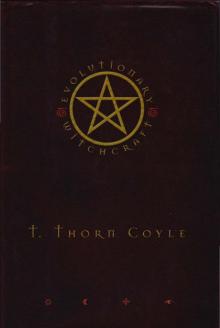 T Thorn Coyle Evolutionary Witchcraft (pdf)
T Thorn Coyle Evolutionary Witchcraft (pdf)![K J Emrick & Kathryn De Winter - [Moonlight Bay Psychic Mystery 01-06] - A Friend in; on the Rocks; Feature Presentation; Manor of; by Chocolate Cake; A-Maze-Ing Death (retail) (epub) Read online](http://freenovelread.comhttps://picture.efrem.net/img/nienyi/k_j_emrick_and_kathryn_de_winter_-_moonlight_bay_psychic_of_by_chocolate_cake_a-maze-ing_death_retail_epub_preview.jpg) K J Emrick & Kathryn De Winter - [Moonlight Bay Psychic Mystery 01-06] - A Friend in; on the Rocks; Feature Presentation; Manor of; by Chocolate Cake; A-Maze-Ing Death (retail) (epub)
K J Emrick & Kathryn De Winter - [Moonlight Bay Psychic Mystery 01-06] - A Friend in; on the Rocks; Feature Presentation; Manor of; by Chocolate Cake; A-Maze-Ing Death (retail) (epub) Next Day of the Condor
Next Day of the Condor Onyx
Onyx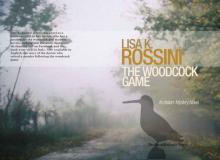 The Woodcock Game: An Italian Mystery Novel
The Woodcock Game: An Italian Mystery Novel Granta 122: Betrayal (Granta: The Magazine of New Writing)
Granta 122: Betrayal (Granta: The Magazine of New Writing)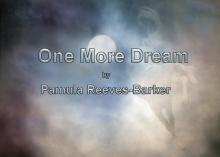 One More Dream
One More Dream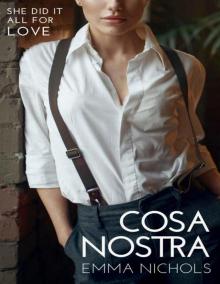 Cosa Nostra by Emma Nichols) 16656409 (z-lib.org) (1)-compressed
Cosa Nostra by Emma Nichols) 16656409 (z-lib.org) (1)-compressed Cowboy by J. M. Snyder
Cowboy by J. M. Snyder Colossus
Colossus Star Trek - DS9 011 - Devil In The Sky
Star Trek - DS9 011 - Devil In The Sky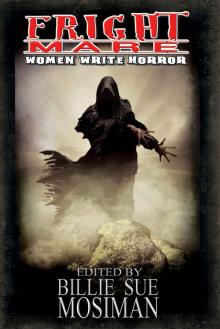 Fright Mare-Women Write Horror
Fright Mare-Women Write Horror The Future Is Japanese
The Future Is Japanese In the Witching Hour
In the Witching Hour Mammoth Books presents Wang's Carpets
Mammoth Books presents Wang's Carpets The Cradle King: The Life of James VI and I, the First Monarch of a United Great Britain
The Cradle King: The Life of James VI and I, the First Monarch of a United Great Britain Stalking Moon
Stalking Moon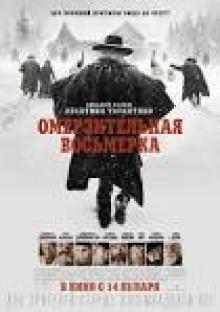 Hostage To The Devil
Hostage To The Devil![Harris, Daisy - Mere Passion [Ocean Shifters 2] (Siren Publishing Classic) Read online](http://i1.bookreadfree.com/i/03/23/harris_daisy_-_mere_passion_ocean_shifters_2_siren_publishing_classic_preview.jpg) Harris, Daisy - Mere Passion [Ocean Shifters 2] (Siren Publishing Classic)
Harris, Daisy - Mere Passion [Ocean Shifters 2] (Siren Publishing Classic) Day, Sunny - Hot in Space (Siren Publishing Ménage and More)
Day, Sunny - Hot in Space (Siren Publishing Ménage and More) Five Books Of The Lives, Heroic Deeds And Sayings Of Gargantua And His Son Pantagruel
Five Books Of The Lives, Heroic Deeds And Sayings Of Gargantua And His Son Pantagruel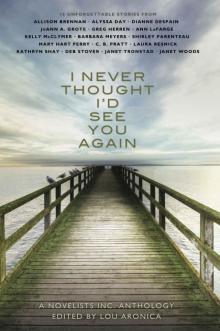 I Never Thought I'd See You Again: A Novelists Inc. Anthology
I Never Thought I'd See You Again: A Novelists Inc. Anthology Billion dollar baby bargain.txt
Billion dollar baby bargain.txt![Chenery, Marisa - Turquoise Eye of Horus [Egyptian Shifters 1] (Siren Publishing Classic) Read online](http://i1.bookreadfree.com/i1/03/26/chenery_marisa_-_turquoise_eye_of_horus_egyptian_shifters_1_siren_publishing_classic_preview.jpg) Chenery, Marisa - Turquoise Eye of Horus [Egyptian Shifters 1] (Siren Publishing Classic)
Chenery, Marisa - Turquoise Eye of Horus [Egyptian Shifters 1] (Siren Publishing Classic) Cat Magic
Cat Magic Star Trek - DS9 - Warped
Star Trek - DS9 - Warped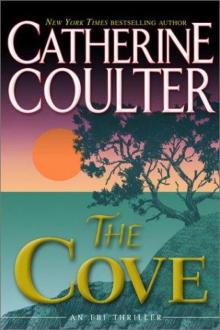 Catherine Coulter - FBI 1 The Cove
Catherine Coulter - FBI 1 The Cove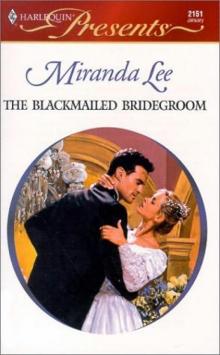 Miranda Lee -The Blackmailed Bridegroom
Miranda Lee -The Blackmailed Bridegroom The Seashell Anthology of Great Poetry
The Seashell Anthology of Great Poetry Dragon Moon
Dragon Moon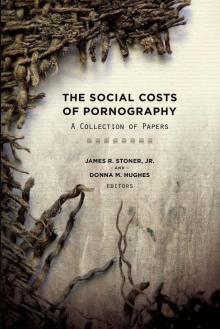 The Social Costs of Pornography: A Collection of Papers
The Social Costs of Pornography: A Collection of Papers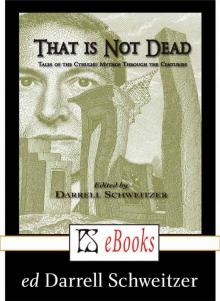 That Is Not Dead
That Is Not Dead Best New Horror: Volume 25 (Mammoth Book of Best New Horror)
Best New Horror: Volume 25 (Mammoth Book of Best New Horror) This Christmas by J. M. Snyder
This Christmas by J. M. Snyder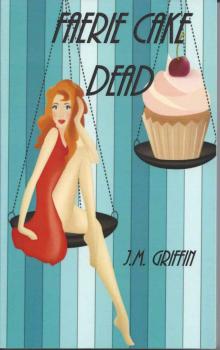 Faerie Cake Dead
Faerie Cake Dead CS-Dante's Twins
CS-Dante's Twins EFD1: Starship Goodwords (EFD Anthology Series from Carrick Publishing)
EFD1: Starship Goodwords (EFD Anthology Series from Carrick Publishing)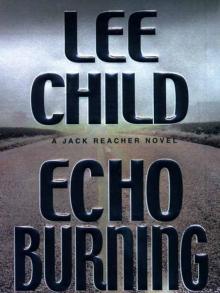 Echo Burning by Lee Child
Echo Burning by Lee Child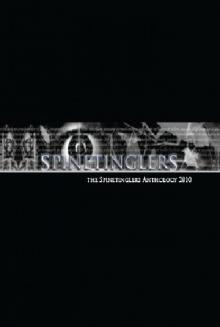 The Spinetinglers Anthology 2010
The Spinetinglers Anthology 2010 Wild Hearts
Wild Hearts Violet Winspear - Sinner ...
Violet Winspear - Sinner ...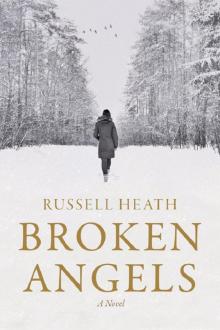 Broken Angels
Broken Angels FearNoEvil
FearNoEvil![Santiago, Lara - Range War Bride [Tasty Treats 11] (Siren Publishing PolyAmour) Read online](http://i1.bookreadfree.com/i1/03/30/santiago_lara_-_range_war_bride_tasty_treats_11_siren_publishing_polyamour_preview.jpg) Santiago, Lara - Range War Bride [Tasty Treats 11] (Siren Publishing PolyAmour)
Santiago, Lara - Range War Bride [Tasty Treats 11] (Siren Publishing PolyAmour) 8 Great Hebrew Short Novels
8 Great Hebrew Short Novels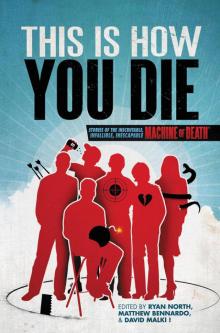 This Is How You Die: Stories of the Inscrutable, Infallible, Inescapable Machine of Death
This Is How You Die: Stories of the Inscrutable, Infallible, Inescapable Machine of Death The Steampowered Globe
The Steampowered Globe While We Wait by J. M. Snyder
While We Wait by J. M. Snyder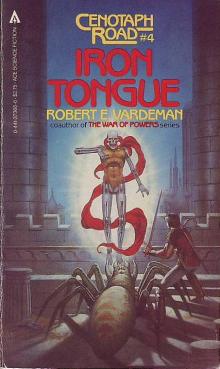 Iron Tongue cr-4
Iron Tongue cr-4![Stieg Larsson [Millennium 02] The Girl Who Played with Fire v5.0 (LIT) Read online](http://i1.bookreadfree.com/i1/03/31/stieg_larsson_millennium_02_the_girl_who_played_with_fire_v5_0_lit_preview.jpg) Stieg Larsson [Millennium 02] The Girl Who Played with Fire v5.0 (LIT)
Stieg Larsson [Millennium 02] The Girl Who Played with Fire v5.0 (LIT)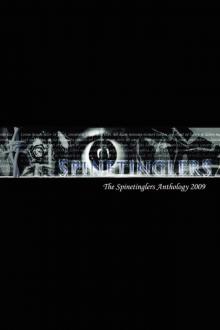 The Spinetinglers Anthology 2009
The Spinetinglers Anthology 2009 Bowles, Jan - Branded by the Texas Rancher (Siren Publishing Classic)
Bowles, Jan - Branded by the Texas Rancher (Siren Publishing Classic) Brown, Berengaria - Vivienne's Vacation (Siren Publishing Ménage and More)
Brown, Berengaria - Vivienne's Vacation (Siren Publishing Ménage and More) Inheritors
Inheritors Arthur Conan Doyle: A Life in Letters
Arthur Conan Doyle: A Life in Letters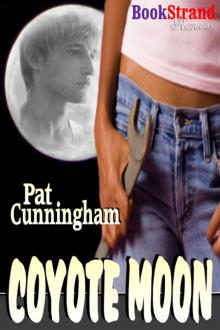 Cunningham, Pat - Coyote Moon (BookStrand Publishing Romance)
Cunningham, Pat - Coyote Moon (BookStrand Publishing Romance)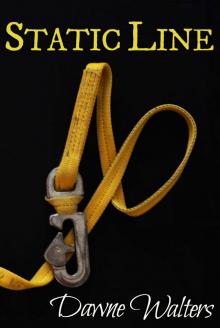 Static Line
Static Line Ghost Mysteries & Sassy Witches (Cozy Mystery Multi-Novel Anthology)
Ghost Mysteries & Sassy Witches (Cozy Mystery Multi-Novel Anthology) Elizabeth Neff Walker - Puppy Love
Elizabeth Neff Walker - Puppy Love Ghosts in the Machine
Ghosts in the Machine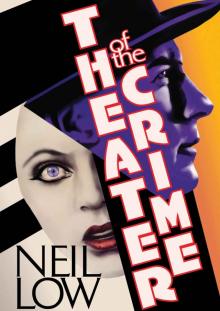 Theater of the Crime (Alan Stewart and Vera Deward Murder Mysteries Book 6)
Theater of the Crime (Alan Stewart and Vera Deward Murder Mysteries Book 6)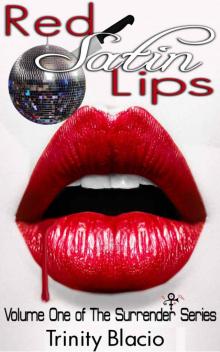 Red Satin Lips, Book One (The Surrender Series)
Red Satin Lips, Book One (The Surrender Series)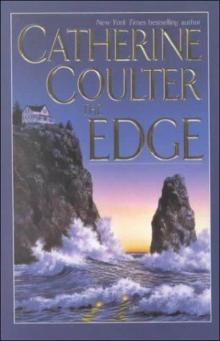 Catherine Coulter - FBI 4 The Edge
Catherine Coulter - FBI 4 The Edge StateoftheUnion
StateoftheUnion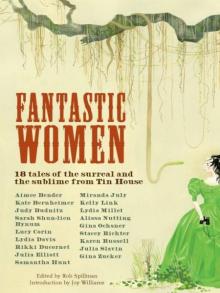 Fantastic Women: 18 Tales of the Surreal and the Sublime from Tin House
Fantastic Women: 18 Tales of the Surreal and the Sublime from Tin House Sara Wood-Expectant Mistress original
Sara Wood-Expectant Mistress original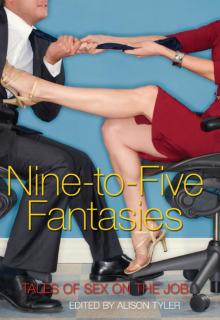 Nine-to-Five Fantasies: Tales of Sex on the Job
Nine-to-Five Fantasies: Tales of Sex on the Job Granta 133
Granta 133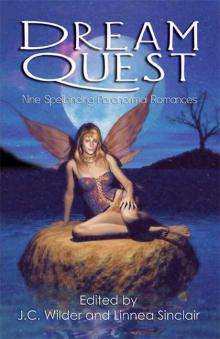 Dream Quest
Dream Quest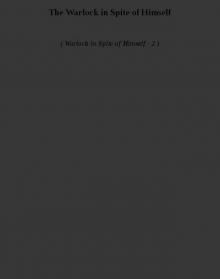 The Warlock in Spite of Himself wisoh-2
The Warlock in Spite of Himself wisoh-2 Glenn, Stormy - Mating Heat (Siren Publishing Ménage Amour)
Glenn, Stormy - Mating Heat (Siren Publishing Ménage Amour) Davis, Lexie - Toys from Santa (Siren Publishing Classic)
Davis, Lexie - Toys from Santa (Siren Publishing Classic) Once Dead, Twice Shy
Once Dead, Twice Shy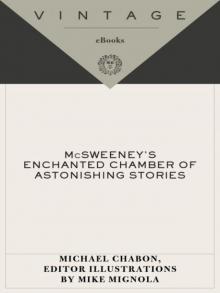 McSweeney's Enchanted Chamber of Astonishing Stories
McSweeney's Enchanted Chamber of Astonishing Stories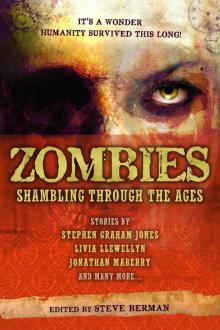 Zombies: Shambling Through the Ages
Zombies: Shambling Through the Ages Baghdad Without a Map
Baghdad Without a Map Banshee Cries (the walker papers)
Banshee Cries (the walker papers)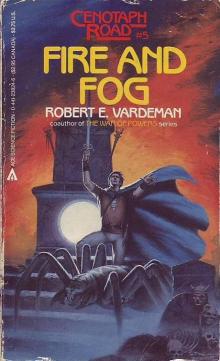 Fire and Fog cr-5
Fire and Fog cr-5 The Twelve Hot Days of Christmas
The Twelve Hot Days of Christmas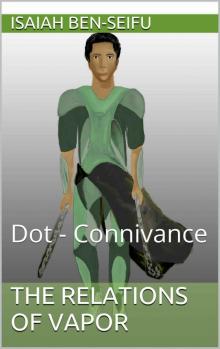 The Relations of Vapor: Dot - Connivance
The Relations of Vapor: Dot - Connivance![Harris, Daisy - Mere Temptation [Ocean Shifters 1] (Siren Publishing Classic) Read online](http://i1.bookreadfree.com/i2/04/11/harris_daisy_-_mere_temptation_ocean_shifters_1_siren_publishing_classic_preview.jpg) Harris, Daisy - Mere Temptation [Ocean Shifters 1] (Siren Publishing Classic)
Harris, Daisy - Mere Temptation [Ocean Shifters 1] (Siren Publishing Classic)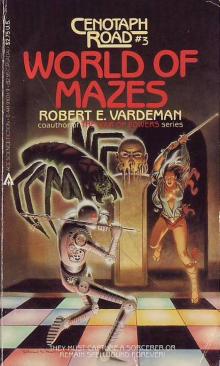 World of Mazes cr-3
World of Mazes cr-3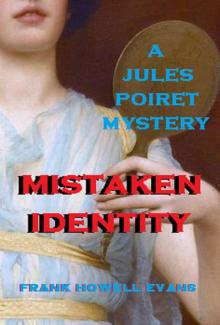 Mistaken Identity (A Jules Poiret Mystery Book 26)
Mistaken Identity (A Jules Poiret Mystery Book 26) Star Trek - DS9 - Fall of Terok Nor
Star Trek - DS9 - Fall of Terok Nor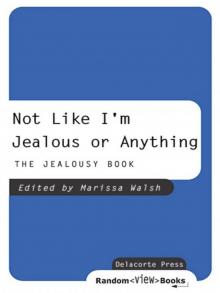 Not Like I'm Jealous or Anything: The Jealousy Book (Ruby Oliver)
Not Like I'm Jealous or Anything: The Jealousy Book (Ruby Oliver) Skaterboy by J. M. Snyder
Skaterboy by J. M. Snyder The Sorcerer_s Skull cr-2
The Sorcerer_s Skull cr-2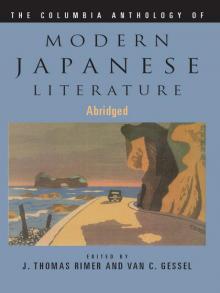 The Columbia Anthology of Modern Japanese Literature (Modern Asian Literature Series)
The Columbia Anthology of Modern Japanese Literature (Modern Asian Literature Series)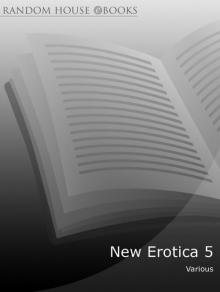 New Erotica 5
New Erotica 5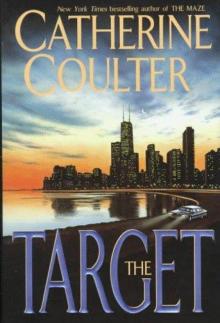 Catherine Coulter - FBI 3 The Target
Catherine Coulter - FBI 3 The Target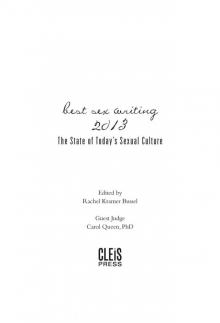 Best Sex Writing 2013: The State of Today's Sexual Culture
Best Sex Writing 2013: The State of Today's Sexual Culture Factoring Humanity
Factoring Humanity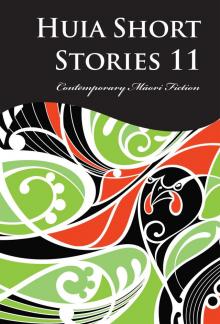 Huia Short Stories 11
Huia Short Stories 11 Call of the Wilds
Call of the Wilds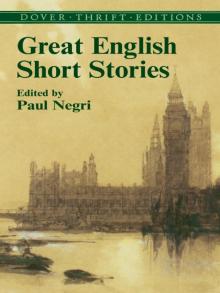 Great English Short Stories (Dover Thrift Editions)
Great English Short Stories (Dover Thrift Editions)![Ramagos, Tonya - Logan's Lessons [Sunset Cowboys 2] (Siren Publishing Classic) Read online](http://i1.bookreadfree.com/i2/04/10/ramagos_tonya_-_logans_lessons_sunset_cowboys_2_siren_publishing_classic_preview.jpg) Ramagos, Tonya - Logan's Lessons [Sunset Cowboys 2] (Siren Publishing Classic)
Ramagos, Tonya - Logan's Lessons [Sunset Cowboys 2] (Siren Publishing Classic)![Morgan, Nicole - Sweet Redemption [Sweet Awakenings 1] (Siren Publishing Allure) Read online](http://i1.bookreadfree.com/i2/04/10/morgan_nicole_-_sweet_redemption_sweet_awakenings_1_siren_publishing_allure_preview.jpg) Morgan, Nicole - Sweet Redemption [Sweet Awakenings 1] (Siren Publishing Allure)
Morgan, Nicole - Sweet Redemption [Sweet Awakenings 1] (Siren Publishing Allure)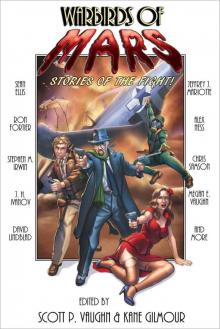 Warbirds of Mars: Stories of the Fight!
Warbirds of Mars: Stories of the Fight!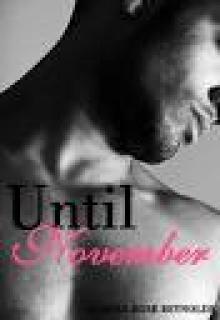 Original Version of Edited Godwin Stories(lit)
Original Version of Edited Godwin Stories(lit) Where The Hell is Boulevard?
Where The Hell is Boulevard?![Chemical [se]X Read online](http://i1.bookreadfree.com/i2/04/13/chemical_sex_preview.jpg) Chemical [se]X
Chemical [se]X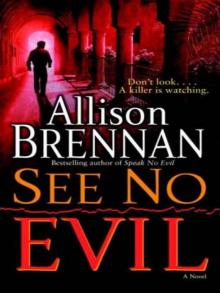 Allison Brennan - See No Evil
Allison Brennan - See No Evil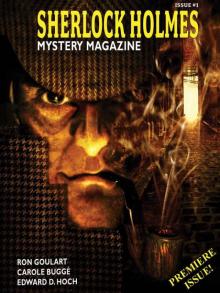 Sherlock Holmes Mystery Magazine #1
Sherlock Holmes Mystery Magazine #1